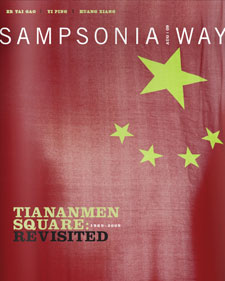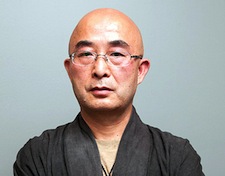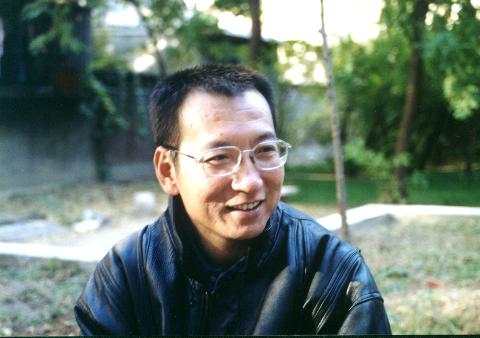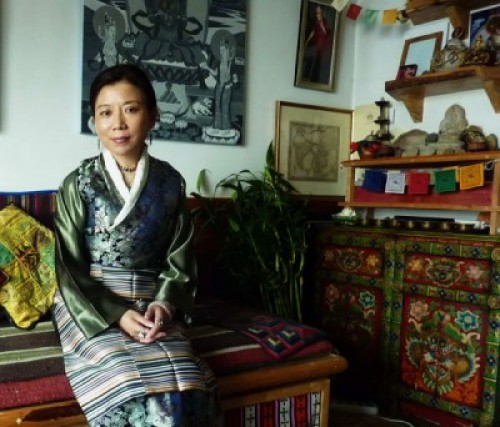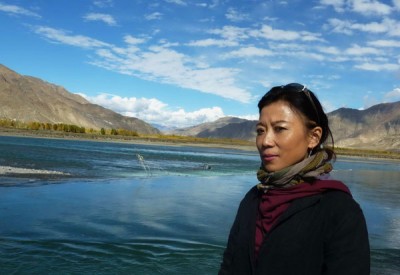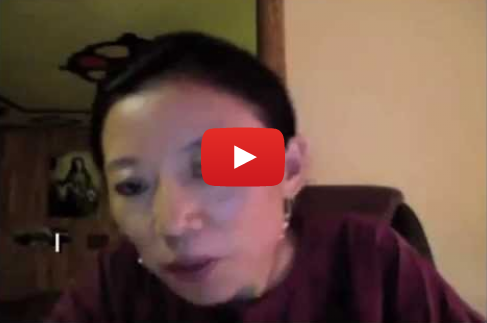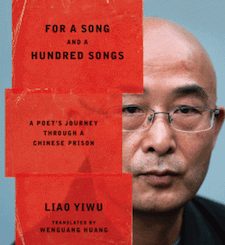Exiled Voices of China and Tibet
by Sampsonia Way / May 6, 2013 / No comments
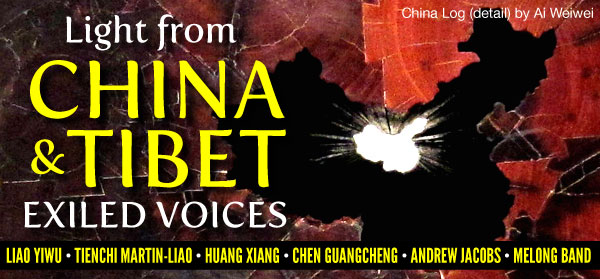
City of Asylum/Pittsburgh’s upcoming Exiled Voices of China Tibet is taking place on June 8, 2013. The day-long event includes free talks, readings and performances that would be considered illegal by the Chinese government. To provide a guide to understand the participants and their countries’ situations, Sampsonia Way has curated standout pieces from its three year coverage of exiled and persecuted writers. Writer Liao Yiwu, poet Huang Xiang, and Independent Chinese PEN Center president Tienchi Martin-Liao are among the performers. We also provide four pieces by the Guest participant and The New York Times Beijing correspondent Andrew Jacobs.
Tiananmen Square Revisited
Features from the first issue of Sampsonia Way
- Fighting Oppression
One Smile at a Time
by Desiree Cooper - Between Fresh Blood and Starlight
- Three Thoughts on the Tiananmen Massacre
by Er Tai Gao - In Memoriam — The 20th Anniversary of the Tiananmen Massacre
by Yi Ping - Letter to City of Asylum Pittsburgh
by Huang Xiang - View Issue as Flipbook
Exiled Writer Liao Yiwu, China’s Memory-Keeper
by Maxine Case
In this interview, Liao Yiwu talks to Maxine Case about his books, his struggles with the Chinese government, and related a few anecdotes about people on the fringe of Chinese society that he has interviewed and whose stories he had recorded.
The Empire Strikes Back
by Tienchi Martin-Liao
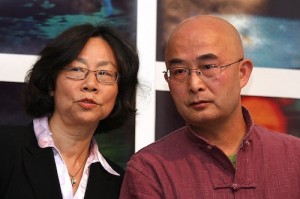
Left: Tienchi Martin-Liao. Right: Liao Yiwu, who has been campaigning for Li Bifeng's freedom. © Elke Wetzig/CC-BY-SA
In this “Blind Chess” column, Independent Chinese PEN Center president Tienchi Martin-Liao reflects on the ancient practices of “literary inquisition” and “kin liability” and how these practices are still relevant in China today, as in the case of writer and poet Li Bifeng. The exiled writer Liao Yiwu has been actively appealing for Bifeng’s release.
Blind Chess: A Column by Tienchi Martin-Liao
A selection of Martin-Liao’s recent columns
Remembering Liu Xiaobo
by Joshua Barnes
In this piece we remember the work of Liu Xiaobo, Chinese activist writer, literary critic, co-author of Charter 08, and Nobel Laureate, who is currently serving an 11-year sentence for “inciting subversion of state power.”
Woeser, a Lighthouse for Tibetans
by Tienchi Martin-Liao
As Tibetans react to Chinese oppression with self-immolation, a writer records their stories. Tienchi Martin-Liao profiles Tsering Woeser, an internationally renowned Tibetan poet and activist writer who reports on the situation in Tibet. Also commentary on the self-immolated monks whose stories Woeser shares in her blog.
Tsering Woeser: Fearless Reporting Behind China’s Great Firewall
by Joshua Barnes
Woeser’s online journalism has earned her more than awards and international recognition; it’s also earned her harassment and constant surveillance by the Chinese government. Undeterred, she continues to write, motivated by her desire to share the truth about today’s Tibet with the world.
Live from Tibet: A Video Interview with Tsering Woeser
In this video interview Tibetan-Chinese writer, blogger, and activist Tsering Woeser discusses her history of harassment at the hands of the Chinese government, the current situation in Tibet, and what people can do to help. She also reads a short poem.
Huang Xiang
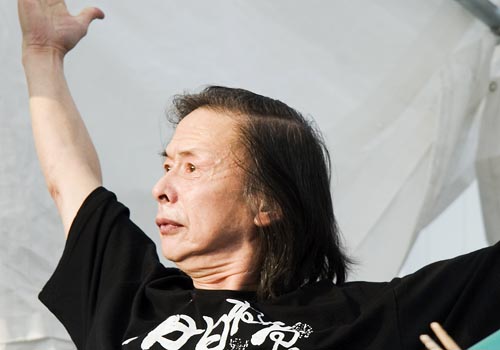
Huang Xiang is considered the pre-eminent poet of post-cultural revolutionary China. After numerous imprisonments and torture, Huang Xiang left his homeland in the face of unrelenting persecution. He was the first writer to be provided sanctuary at City of Asylum/Pittsburgh (2004-06).
Watch a video profile of Huang Xiang
Read an excerpt of A Lifetime is a Promise to Keep: Poems of Huang Xiang
Chen Guangcheng
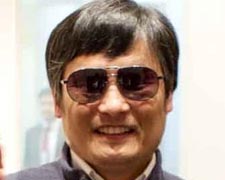
Chen Guangcheng is a Chinese civil rights activist. Blind from an early age and self-taught in the law, he was placed under house arrest in 2005, then formally arrested in June 2006, and imprisoned for four years. Placed again under house arrest, he escaped in April 2012 and fled to the US Embassy in Beijing, after which he and his family were granted US visas and left Beijing for New York City. Chen received the 2007 Ramon Magsaysay Award and was named to the 2006 Time 100.
Challenge for U.S. After Escape by China Activist. (New York Times.)
Andrew Jacobs

Photo © Justin Schein
The New York Times Beijing correspondent Andrew Jacobs reports daily from China on government and society, politics, justice, and culture. Jacobs was part of the team of Times reporters who won a 2001 Pulitzer Prize for their coverage of the events of 9/11.
Liao Yiwu, Dissident Chinese Writer, “Ecstatic” After Fleeing to Germany
Excerpt: Liao Yiwu’s For a Song and a Hundred Songs
Sampsonia Way presents an excerpt from Liao Yiwu’s new book, For a Song and a Hundred Songs: A Poet’s Journey Through a Chinese Prison, which won the German Book Trade’s Peace Prize last fall.
The selection details Liao’s 1990 arrest and the CCP’s subsequent arrests of the poets, artists, and intellectuals in Liao’s circle of friends.

